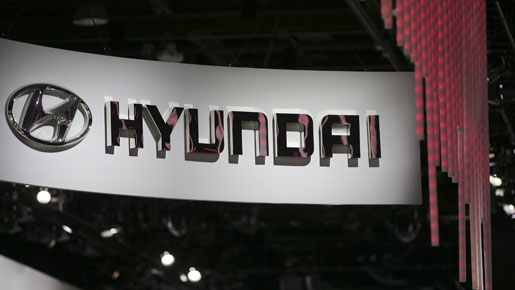
In a European automotive industry hit hard by the economic downturn, Hyundai stands out as a brand on the rise. The company has seen unprecedented growth this year, with sales for the first six months of 2009 up 15.7 percent compared to the first half of 2008 – in stark contrast to an overall new car market down 11 percent during the same period.
Notably, this success has been driven by the growing popularity of the brand in leading western European markets, such as Germany, Italy and the UK. As a result, Hyundai is on track to increase its meet its objective of achieving a market share of 2.5 percent by year-end.
Dominating Hyundai’s new car sales are its compact new ‘i-range’ cars – the i10 city car; i20 small hatchback; and i30 C-segment hatchback and estate – which have brought the brand to the attention of Europe’s consumers and corporate car buyers. Designed and developed in Europe to suit the requirements and driving styles of European motorists, the i-range presents superb quality and reliability, class-leading specifications, low CO2 emissions and excellent value-for-money.
Hyundai’s recent success hasn’t all been about sales growth. A study undertaken recently by EurotaxGlass’s – the independent automotive intelligence firm – forecasts that Hyundai’s compact ‘i’-models will return class-leading residual values after three years and 30,000km. The residual value strength of Hyundai’s latest vehicles underlines the burgeoning reputation of the brand, and the lasting quality of its products.
Hyundai’s best selling i30 model should, predicts EurotaxGlass’s, exceed the residual value average for its segment after three years. It is expected to retain 50 percent of its list price, beating the segment average by a substantial 2.9 percent. The analysis shows the i30 will perform particularly well in the UK (+eight percent above the national average for the segment), Italy (+6.4 percent), Spain (+5.2 percent) and France (+4.4 percent).
Launched in 2007, the i30 hatchback and CW estate have become Hyundai’s fastest-selling models in Europe, with sales exceeding 130,000 units. Building on this success, the i30 was the first Hyundai model in Europe to be launched under the company’s Blue Drive eco-initiative, with the introduction of the i30 Blue. Fitted with innovative ISG Stop-Start technology this ‘Blue’ variant can improve fuel efficiency by seven percent and reduce CO2 emissions by 10g/km.
A mainstream contender in the mid-size hatchback segment, the i30 is an intelligent choice for European buyers. It is available with Hyundai’s extended five-year powertrain warranty and is built at the company’s first European manufacturing plant in the Czech Republic. This central location ensures reduced delivery times for European customers.
Hyundai has managed to capitalise on the current demand for compact, high quality vehicles with low running costs. In countries that tend to favour small cars, the i10 and i20 are major players in the city and small car segments, respectively, and the latest residual value forecasts are expected to broaden their appeal even more.
For example, EurotaxGlass’s anticipates that the i10 RVs will be particularly good in markets such as Italy, where sales of city cars are traditionally very strong. Predictions show the i10 will retain 57.5 percent of its original price, some eight percent ahead of the segment’s average in Italy. Meanwhile the i20 is reported to perform above its segment average in key small-car growth markets such as the Netherlands, Austria, France, Spain and Switzerland.
The latest residual value forecasts further demonstrate Hyundai’s success in reducing the total cost of ownership, and to providing high value, high quality packages for all its European customers.
For more information about the Hyundai range, visit www.hyundai-motor-europe.com.

